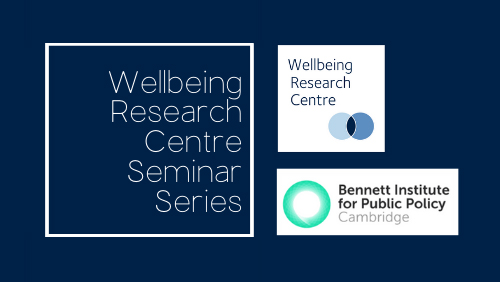Research Associate, Public Policy, University of Warwick
Viewing archives for Dr. Mark Fabian
Dr. Mark Fabian
Worldview defence and self-determination theory explain the return of racial voting: Evidence from the 2016 US election
Mark Fabian, Robert Breunig and Jan-Emmanuel De Neve
We use self-determination (SDT) and worldview defence theories (WDT) to explicate the psychological roots of identitarian voting in recent US, UK and EU elections. We test our theory using the 2016 US election as a case study, data from a representative sample of nearly half a million Americans, and a measure of racial animus derived from Google search data. We find that worry has a strong and significant positive association with Trump’s vote share, as predicted by WDT. However, this is reversed in counties with high levels of relatedness—one of the three basic psychological needs emphasised by SDT. The positive relationship between racial animus and Trump also loses significance once an interaction between racial animus and relatedness is introduced. These results imply that identitarianism is driven at least in part by a desire for in-group affiliation emerging out of worldview defence and unmet basic psychological needs.
COVID-19 and Subjective Well-Being: Separating the Effects of Lockdowns from the Pandemic
Fundamental Issues In The Measurement Of Subjective Wellbeing (SWB) – Part 8
Fundamental Issues In The Measurement Of Subjective Wellbeing (SWB) – Part 1
Hijacking Anxiety: How Trump Weaponised Social Alienation Into ‘Racialised Economics’
Polls point to a decisive defeat for Donald Trump. But his unexpected win in 2016 still has opponents rattled, fearing the same divisive rhetoric that characterised his 2016 campaign could help him scrape home.
The US has not been so divided by politics, religion and identity in decades. Particularly troubling are the nation’s inflamed ethnic divisions.
Overall, polls show a majority of voters disapprove of Trump’s handling of “race relations”.
But now, as in 2016, what matters is the view of voters in the “rust-belt” states of Iowa, Wisconsin, Michigan, Ohio and Pennsylvannia, which all swung to Trump in 2016 on the back of strong support from white working-class voters.
Bowling with Trump: Economic anxiety, racial identification, and well-being in the 2016 Presidential election
Mark Fabian, Jan-Emmanuel De Neve & Robert Breunig
Abstract
We use well-being data from the Gallup Daily Poll and a measure of racial animus derived from Google search data to explain why racial identification became politically salient in the 2016 Presidential Election. We find that the oft-observed positive relationship between racial animus and Trump’s vote share is eliminated by introducing an interaction between racial animus and a measure of the basic psychological need for relatedness. We also find that rates of worry have a strong and significant positive association with Trump’s vote share, but this is offset by high levels of relatedness. Together, these two results imply that racial voting behavior in 2016 was driven by a desire for in-group affiliation as a way of buffering against economic and cultural anxiety. Such behavior is well established in laboratory studies in self-determination theory and worldview defense theory. We find no effect on Trump’s performance from social capital or exposure to trade shocks. This suggests that the economic roots of Trump’s success may be overstated and that the need for relatedness is a key underlying driver of contemporary political trends in the US.



